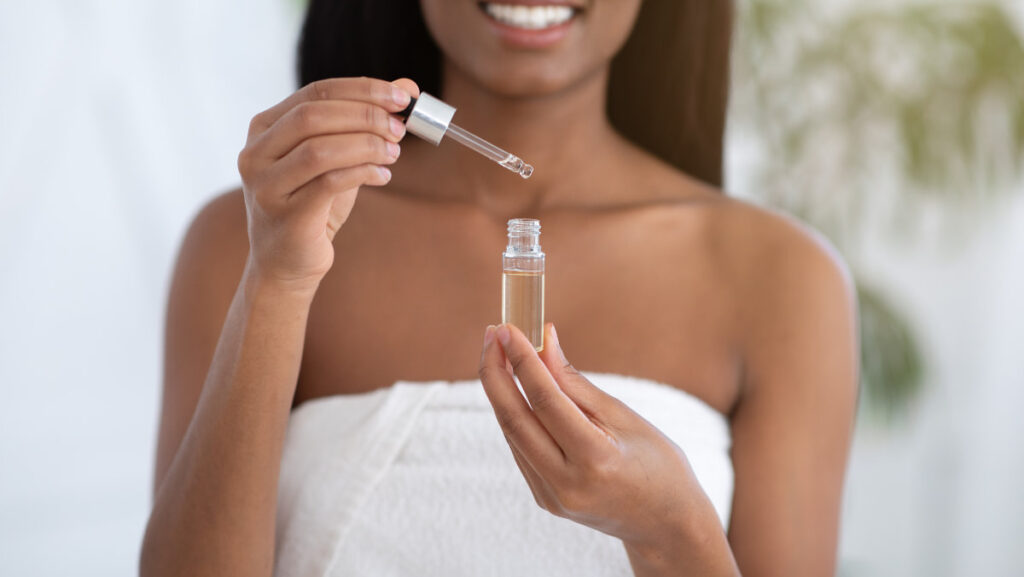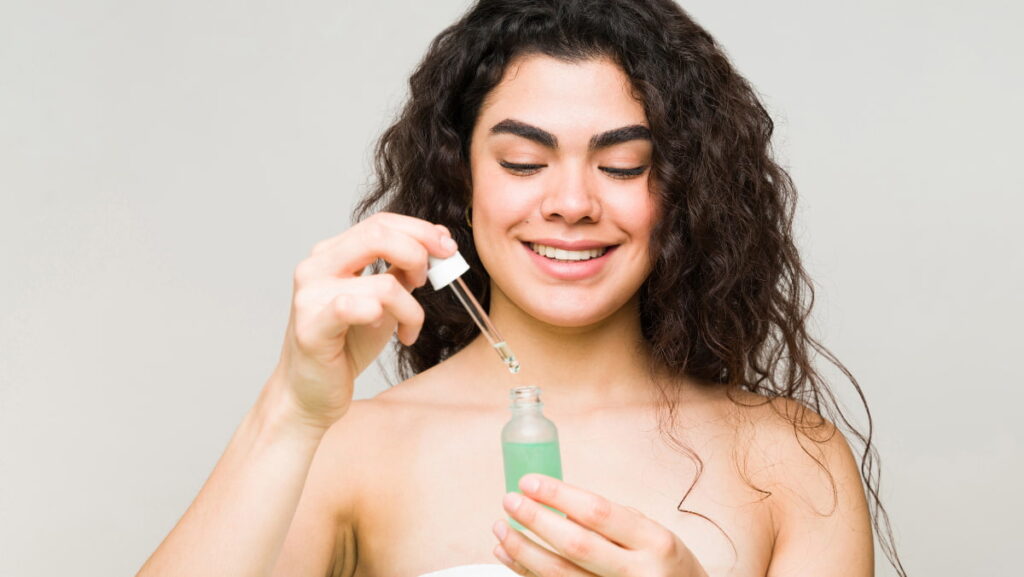Can Hyaluronic Acid Cause Acne? Interesting Studies Explain
You’ve probably heard of hyaluronic acid (HA) as a hydrating hero in the skincare world. It’s everywhere—from serums to creams and masks, touted for its ability to lock in moisture and support your skin’s barrier.
But when it comes to acne, the waters get murky. You’re left wondering if this celebrated ingredient is a friend or foe to those pesky breakouts.
In this article, we’ll dive deep into the relationship between hyaluronic acid and acne. You’ll discover if HA is the culprit behind your breakouts or if it’s actually a misunderstood ally in your fight for clear skin.
Get ready to unravel the myths and learn how this powerhouse humectant can fit into your acne care routine.
Can Hyaluronic Acid Cause Acne?
Onto the big question: Can this moisturizing magician called hyaluronic acid cause acne? Here’s the straight-up answer: it’s non-comedogenic. This means it doesn’t clog pores. It actually hydrates the skin without causing pore blockage or pimples.
That’s right, hyaluronic acid doesn’t play games when it comes to your pores. Actually, research from 2017[1] suggests hyaluronic acid also helps control sebum production, which makes it a useful ingredient for acne prevention.
Does Hyaluronic Acid Have Any Side Effects?
Hyaluronic acid is generally considered a safe and beneficial ingredient for most skin types, including those prone to acne.
However, some HA serums and creams contain additional ingredients that could irritate sensitive skin or lead to acne. It’s not the HA that causes acne, but it can be an additional ingredient that does.
For instance, if a hyaluronic acid product also contains comedogenic ingredients or fragrances, this could potentially trigger a negative reaction in some skin types.
Moreover, proper usage is key—applying too much product or using it in conjunction with other potent actives (such as retinoids, AHAs, and BHAs) could lead to skin irritation or disrupt the skin’s natural balance, indirectly contributing to breakouts.

Research On The Effects Of Hyaluronic Acid On Acne
Diving into the research, hyaluronic acid (HA) has been appreciated for its role in maintaining skin barrier function and boosting skin cell turnover.
These properties are like a secret weapon for anyone fighting against the aftermath of acne, especially when you’re looking to fade those pesky acne scars.
Although acne scarring can be a tough battle, hyaluronic acid steps up as a hydration hero to keep your skin looking plump and smooth.
A 2020 study[3] involving 12 participants with moderate to severe scarring shows that hyaluronic acid effectively reduced scarring without adverse effects. In this study, participants received two injections 4 weeks apart. The study authors reported significant improvement in the depth of scarring.
A 2017 study[4] suggests topical hyaluronic acid serum may help reduce the appearance of acne scars when combined with CO2 laser resurfacing.
When comparing the results of the combined treatment with those of CO2 laser resurfacing alone, researchers found that adding hyaluronic acid serum led to more improvement in scarring. It also had the added benefit of less recovery time and reduced side effects.
According to research from 2014[5], hyaluronic acid can help reduce the appearance of wrinkles and fine lines and improve skin elasticity.
More Benefits Of Hyaluronic Acid
Hyaluronic acid (HA) is a naturally occurring glycosaminoglycan that plays a critical role in maintaining skin hydration, elasticity, and health.
Found plentifully in the extracellular matrix of the skin, hyaluronic acid has an extraordinary capacity to attract and retain moisture—it can hold up to 1000 times its weight in water!
It’s a skincare superstar ingredient that is included in a multitude of moisturizing products for its humectant properties, which means it draws water from the environment and deeper layers of your skin to the outermost layer, giving that plump, dewy effect to your complexion.
The presence of HA in the skin is fundamental for tissue repair and for creating a barrier against pollutants and bacteria that can cause damage.
Given its compatibility with all skin types and its numerous benefits for the skin, hyaluronic acid is frequently recommended by dermatologists and skincare professionals, even for those who struggle with breakouts, oiliness, or sensitive skin conditions.
Hyaluronic Acid as a Natural Moisturizer
You’re probably aware that keeping your skin hydrated is a big deal. That’s where hyaluronic acid steps in; it’s your skin’s hydration hero.
Far from being harsh or skin-stripping, this power-player ingredient naturally occurs in your body, topping up moisture levels like nobody’s business.
It pulls water from the air and sinks it deep into your skin’s layers, ensuring that your complexion stays quenched throughout the day.
For those in the know, it’s clear why hyaluronic acid is loved by so many. It safeguards your skin barrier function[2], preventing your skin from becoming dehydrated and dull.
Hyaluronic Acid in Anti-Aging Products
Hyaluronic acid boasts impressive anti-aging properties, and you’ll find it splashed across the labels of countless anti-aging potions for a good reason.
Its ability to promote collagen production is also significant since collagen is essential for skin elasticity, strength, and structure.
The loss of collagen and hyaluronic acid as we age contributes to the formation of wrinkles and a lack of firmness in the skin. By replenishing the skin’s natural hyaluronic acid content, products containing HA can smooth out fine lines and improve skin resilience.
Moreover, this hydrating agent not only plumps up fine lines but also aids in skin cell turnover, which is the process your skin naturally uses to ditch dead cells and reveal fresh, radiant skin underneath.
This turnover is a secret weapon against acne scars, helping to fade their appearance over time.
Hyaluronic Acid as a Skin Soother
HA is also very soothing, which is valuable if your skin is sensitive or inflamed. It can help calm the dermis and reduce redness and is often included in formulations designed for skin healing because of its anti-inflammatory properties.
This can be particularly beneficial to those with conditions like eczema or rosacea, in addition to its importance in the regular care of skin that needs an extra boost of hydration without the risk of clogging pores, which is a concern for acne-prone individuals.
Tips For Using Hyaluronic Acid Without Causing Acne
You’ve heard it countless times: hyaluronic acid is a miracle worker for your skin. But picking the right product is key to ensuring skin barrier function remains intact without inviting acne to the party.
Start with a 1% hyaluronic acid concentration; this gentle introduction allows your skin to adapt without the risk of irritation. It’s like getting your feet wet before diving into the pool.
Always gravitate towards non-comedogenic options—they’re formulated to prevent pore blockage. Scan the ingredient list like you’re on a treasure hunt, avoiding those notorious for triggering acne.
Remember, it’s not just about what’s in your serum or moisturizer; it’s also about what’s not in them.
Your goal? A product that sits well with other members of your skincare crew. So, if you apply sunscreen daily (which you absolutely should protect against sun exposure), ensure your hyaluronic acid product pairs nicely, enhancing protection rather than undermining it.

Incorporating Hyaluronic Acid Into Your Skincare Routine
Now that you’ve found your skincare soulmate, it’s time to harmonize it with your routine. First, cleanse your skin gently. This primary step sets the stage for hyaluronic acid to perform at its best.
Next, lock in moisture by applying it to damp skin. Remember, hyaluronic acid is a humectant; it’s designed to draw water in, not work on a desert-like surface.
Here’s where the technique shines: apply a hyaluronic acid serum before your moisturizer, allowing it to boost skin cell turnover without disrupting the delicate acne scars healing underneath. Think of your moisturizer as the sealant—locking in hydration and the healing prowess of hyaluronic acid.
And if you’re tackling acne scarring, consistency with hyaluronic acid can encourage smoother skin over time. However, patience is your best friend; overnight results are not on the menu. You’re crafting a masterpiece, not a quick sketch—and your canvas deserves diligence and care.
Best Hyaluronic Acid Products For Acne-Prone Skin
Conclusion
You’ve got the know-how to make hyaluronic acid your skin’s friend, not its foe. Stick with that 1% concentration and choose products that play nice with your pores.
Remember, it’s all about the right routine—gentle cleansing, damp skin application, and layering under your moisturizer.
Stay patient and consistent, and you’ll likely see those acne scars fade away. Here’s to your journey toward clearer, hydrated skin!






